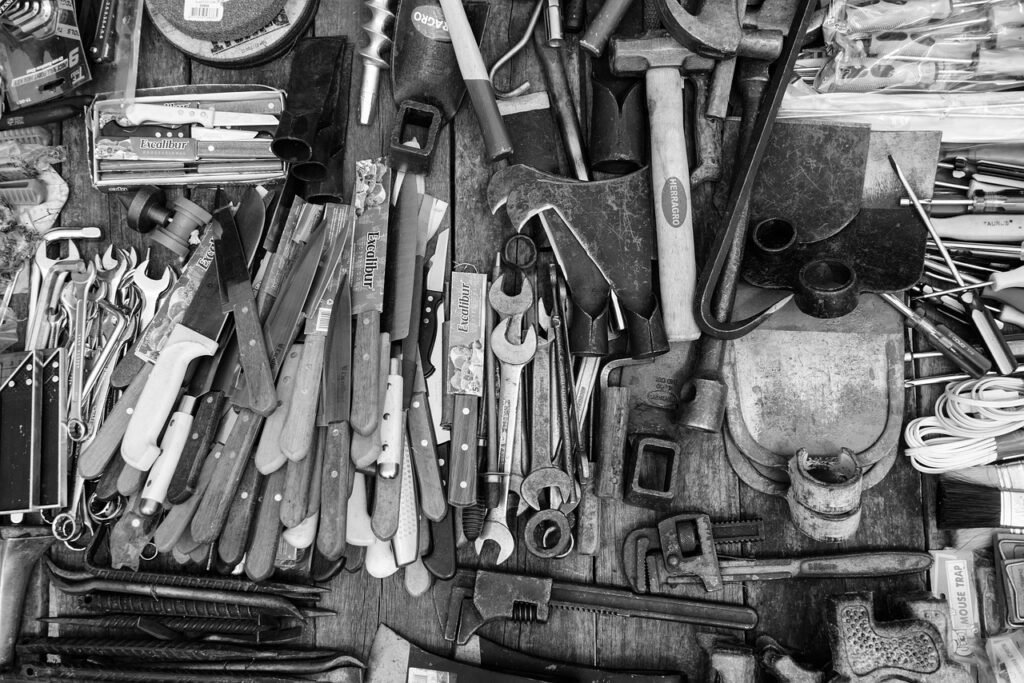Have you ever thought about having your mechanic shop someday? If you are as fascinated as I am with everything cars and would want to make it a business, welcome to the club. Although this dream is held by many people who have made a career out of it, turning it into reality is pretty tough: the needed steps on how to move forward and ensure the survival of your new shop. In reading this article, I will take you through seven vital tips for starting a successful mechanic shop.

- Certification- The Ultimate Gift to Your Mechanic Shop
You’d consider opening up a mechanic shop as one of the many first steps within the business journey toward having your car or doing it yourself. You might even invest in having some serious automotive skills so that you could repair vehicles at home along with other people. But you’ll find it’s going to do wonders by having it.
Certifications provide proof and credibility to the mechanic’s profession and build confidence in customers. Besides, having the right certificates can help you in terms of financing and insuring the business, so vital during your early days. ASE certification is not obtained in general but as per categories. It covers everything ranging from truck equipment through school buses and collision repair to heavy or medium trucks. First, take an area in which you are interested toward establishing yourself, but look first that you are going to have demand for that instruction/certification in the markets. Otherwise, a general mechanic approach might be preferred as a beginner until you get your niche. - Location Matters
It is often said that “location, location, location” is everything in business, and a mechanic shop is no different. The right location can make-or-break your chances for success.
If you have the cute little Nissan Micra or something like it as your line of work, then good client traffic should be appealingsto your drawing power. However, if there’s a propensity to work on bigger vehicles such as trucks and vans, then your location should allow for vehicle access with minimal pedestrian interference. So you’ll need a prominent spot with great visibility and space to park cars.
Make sure the shop layout can accommodate increasing business. And don’t forget the comfort of your customers; think of the possibility of setting a waiting room equipped with a coffee machine, water, and snacks. Such a small gesture could increase customer loyalty. - Budgeting for Initial Expenses
Starting up a mechanic shop comes with hefty initial expenses and so creating a budget is necessary. Starting from the diagnostic machines to even specialty tools, the initial costs accumulate very fast. Also, take note about the insurances and any renovations to be incurred in case an existing place is being made into your shop.
Another rough outline of foregone investment include:
Diagnostic Machines. These can sometimes run into the thousands of dollars, so budgeting accordingly is important.
Tools and Equipment. Depending on the specialty of your shop, you may have to equip yourself with trained tools from basic wrenches to specialized ones.
Lifts. Without a good lift, you can hardly imagine working under a car.
Insurance. Shop for comprehensive coverage to ensure your business is in good hands.
Just a few examples, but all together these will take your startup costs into, easily, tens of thousands. Do thorough research and spend time planning your finances so that you can avoid becoming short of funds at an early stage. - Never Skip the Permits
Now that you are ready with the funds and have sorted the location, legal formalities cannot be ignored. You will have to apply for many permits and licenses in order for your business to function legally. This could mean a state tax I.D. number, a Doing Business As (DBA) registration, and any local permits the auto shop requires.
Contact your local Small Business Administration (SBA) office regarding the permits you will be interested in, and their requirements will largely be impacted by your location. All your paperwork should be ready long before you open your door.
Effective Marketing: The Way to Get People to Know About You
All businesses, including your mechanic shop, must have marketing strategies to attract customers. The good part is that marketing really need not be that difficult. So, if marketing is not something that you feel comfortable doing, hire an expert familiar with the automotive industry as well as digital marketing.
An effective online presence is vital for you to reach new customers. For starters, create a simple yet professional website. Depending on your budget, you may use easy-to-setup platforms like WordPress or hire someone to design a site for you. Remember to include details about the services you provide, your location, and your contact information.
Social media marketing is an equally fundamental part of marketing. Set up accounts on Facebook, Instagram, and maybe TikTok if your audience is there. Post regularly about updates, share promotions, and build relationships with your customers to create a fan base. Ask satisfied customers to leave Google reviews to help enhance your credibility.
Then, old-fashioned marketing works, too! Think about offering discounts for oil changes, tire rotations, and other common services. Referral bonuses are a great way to turn satisfied customers into ambassadors of your brand. Word of mouth does wonders, especially in the local circle. - Accounting Advice: Don’t Skip This Part
Running finances in a mechanic shop isn’t easy, especially when it comes to taxes and payroll. The work of saving one from having to deal with such things can be done by an accountant. With this, an expert helps in business finances, thus helping one from tax requirements and saving from mistakes or penalties in the future.
Setting one up for better record keeping will help make tracking income and expenses so much easier and necessary as the business continues to grow. Use proper record keeping, or if inclined, invest in accounting software to minimize personal recording. - Hire the Right Staff
As your business expands, adding employees becomes a necessity. You may now decide to hire just one or two of these employees at least for customer service and shop work in general. Away from these, the number of mechanics required would gradually increase based on the number of customers.
Take as long as it takes in hiring so that they match your work ethics and values. Competitive packages matter when it comes to hiring some of these individuals. Hire early, at least a month ahead of opening, so that you can find the right ones, go through their references, and set them up for training.
Final Thoughts: Building Strong Relationships
Running a mechanic shop is not just about fixing cars but building relationships with those who drive them. An easy way to get new business is by offering free estimates, especially on jobs like oil changes or brakes. This builds trust and gets customers back for bigger jobs.
Perform services people need all the time: routine maintenance, oil changes, tire rotation, brake repairs. Those services will keep them returning and make sure that your operation lasts in the long run.
If you love cars and are ready to turn your dream into a successful business, these seven tips should help you to build a firm foundation for your mechanic shop. For more information on starting and running a business, do check our other useful articles on business management and entrepreneurship.

